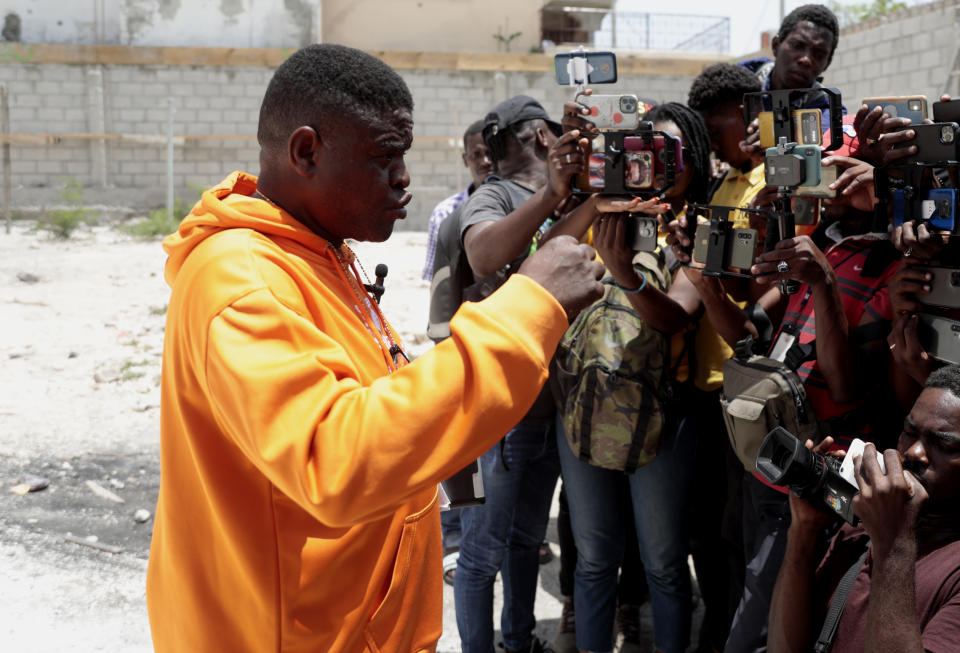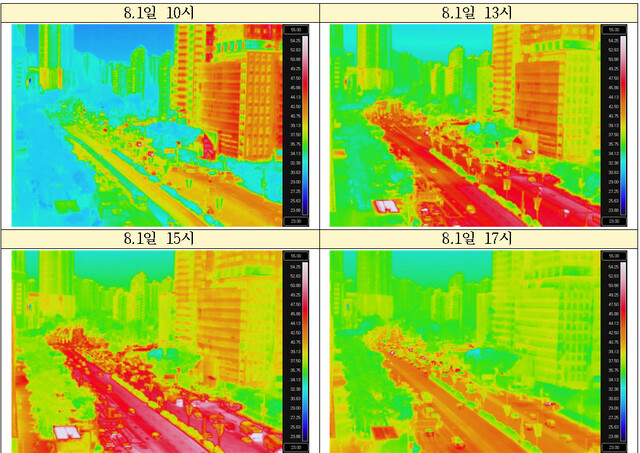Ex-Police Officer and Gang Leader Warns Against International Armed Force in Haiti
PORT-AU-PRINCE, Haiti (AP) — Jimmy Chérisier, also known as ”Barbecue,” a former police officer and considered by many to be Haiti’s most powerful gang leader, issued a warning on Wednesday against any international armed force deployed to the Caribbean country if it committed any abuses. Chérisier, who leads the G9 Family and Allies gang, also called on Haitians to rise up against the government during a news conference.
Prime Minister Ariel Henry has been advocating for the deployment of a foreign armed force since October to combat the powerful gangs that now control 80% of the capital, Port-au-Prince. In late July, Kenya offered to lead a multinational force, and the United States announced earlier this month that it would propose a resolution in the U.N. Security Council to authorize a non-U.N. multinational mission.
Chérisier stated that he would welcome a foreign force if it were to arrest the prime minister and individuals he described as corrupt politicians and local police involved in the sale of ammunition and guns in Haiti’s slums. However, he warned that Haitians would resist if any international force repeated the actions of previous U.N. peacekeepers, such as committing sexual abuses and introducing cholera into water sources.
“We will fight against them until our last breath,” Chérisier declared. “It will be a fight of the Haitian people to save the dignity of our country.”
Chérisier, who has been accused of orchestrating several massacres in recent years and organizing a fuel blockade that paralyzed Haiti for nearly two months last year, announced that his gang is no longer at war with another group known as G-Pep. He called on the Ministry of Education to reopen schools in Cite Soleil and other slums that have been closed due to the violence perpetrated by warring gangs, which has resulted in the displacement of nearly 200,000 Haitians.
During the news conference held at an outdoor construction site in Port-au-Prince, Chérisier was surrounded by several G9 members carrying concealed handguns, a departure from previous appearances where they openly brandished assault rifles.
The United Nations declined to comment on Chérisier’s warning. Chérisier is the only Haitian under U.N. sanctions, with the Security Council accusing him of engaging in acts that threaten Haiti’s peace, security, and stability, as well as committing serious human rights abuses.
The situation in Haiti remains tense as the government seeks international assistance to combat the escalating gang violence and restore stability to the country.

How do Kenya’s offer to lead a multinational force and the United States’ proposal for a new framework for international assistance demonstrate the international community’s concerns about the situation in Haiti, and what impact could these initiatives have on the country’s future stability and security
Esignation for the UN peacekeeping mission in Haiti and a new framework for international assistance to the country.
However, Chérisier expressed concern that an international armed force could end up committing abuses against the Haitian people. He argued that the presence of foreign troops could lead to an increase in violence and human rights violations. His warning comes as a response to ongoing allegations of misconduct by foreign peacekeepers in Haiti in recent years.
Chérisier also used the opportunity to call on the Haitian population to rise up against the current government. He criticized the authorities for their failure to address the growing power of the gangs and their inability to provide basic security to the citizens. He further accused the government of corruption and negligence.
Prime Minister Ariel Henry’s proposal to deploy a foreign armed force has been met with mixed reactions. While some see it as a necessary step to combat the increasing violence and insecurity in Haiti, others fear that it could lead to further unrest and a loss of sovereignty.
Kenya’s offer to lead a multinational force and the United States’ proposal for a new framework for international assistance reflect the international community’s concern over the deteriorating situation in Haiti. The country is plagued by gang violence, political instability, and a worsening humanitarian crisis. The recent assassination of President Jovenel Moïse has further exacerbated the already volatile situation.
As the debate over the deployment of an international armed force continues, it remains to be seen whether Chérisier’s warning and call for uprising will resonate with the Haitian population. The country is in desperate need of solutions to address the ongoing issues and provide a stable and secure future for its citizens.


This is a dangerous situation that could further destabilize Haiti’s already fragile state.
I hope the situation can be resolved peacefully to avoid further harm and suffering for the people of Haiti.